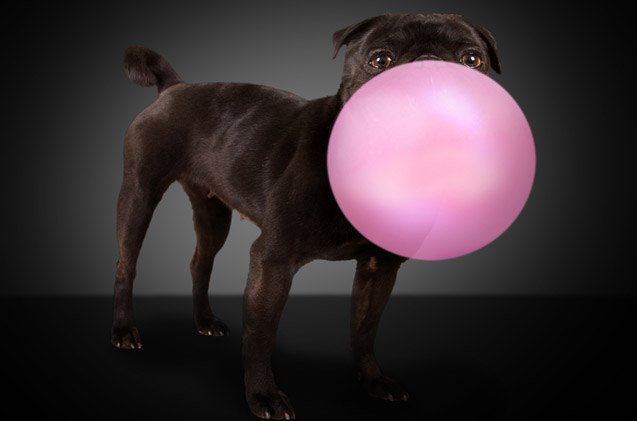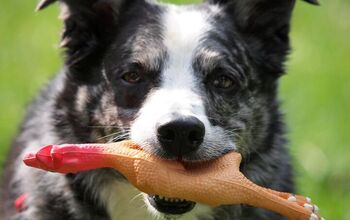FDA Warning: Paws Off The Xylitol

At one point or another, we’ve all been guilty of accidentally leaving a grocery bag or open purse where our curious creatures can reach them. Besides the occasional nosing of fruits, vegetables and perhaps trying to sneak away with a bag of treats, my dog thankfully hasn’t eaten anything dangerous.
Unfortunately, if your dog finds your secret stash of gum, it contains an ingredient that poses a hazard to his health. The culprit is xylitol, a class of sweetener known as sugar alcohol. While xylitol is safe for human consumption, it has some devastating effects on pets. Over the past couple of years, the Food and Drug Administration’s (FDA) Center for Veterinary Medicine has received many reports of xylitol poisoning in dogs.
Related: The Deadly Dangers of Antifreeze Poisoning in Dogs
The reason why it is dangerous for dogs and not for humans has to do with blood sugar levels. In people, xylitol doesn’t stimulate the release of insulin from the pancreas. However when canines eat something containing xylitol, it is quickly absorbed into the bloodstream and can result in a potent release of insulin from the pancreas. This rapid release of insulin can result in a sudden decrease of blood sugar levels and left untreated, his hypoglycemic reaction can be life-threatening.
But gum isn’t the only thing that contains xylitol. Other products that contain this harmful sweetener include cough syrup, breath mints, mouthwash, toothpaste, chewable vitamins, and some baked goods. Symptoms of xylitol poisoning in canines include vomiting, along with symptoms associated with hypoglycemia which include decreased activity, weakness, staggering, collapse, and seizures.
Related: Dogs and Chocolate- Why The Two Don’t Mix
If you suspect your dog has ingested a product which contains xylitol, take them to your local veterinarian or emergency animal hospital to be treated.
To avoid xylitol poisoning in your dog, keep purses and grocery bags off the floor where Fido can reach them. Instead, put them on the counter or out of your dog’s sight so they won’t be tempted to rummage through them. Only use pet toothpaste for your dog, as they are xylitol-free. And if you give your dog a treat such as nut butter, check the label first to make sure it doesn’t contain xylitol.

More by Diana Faria























